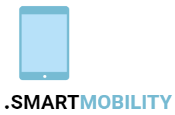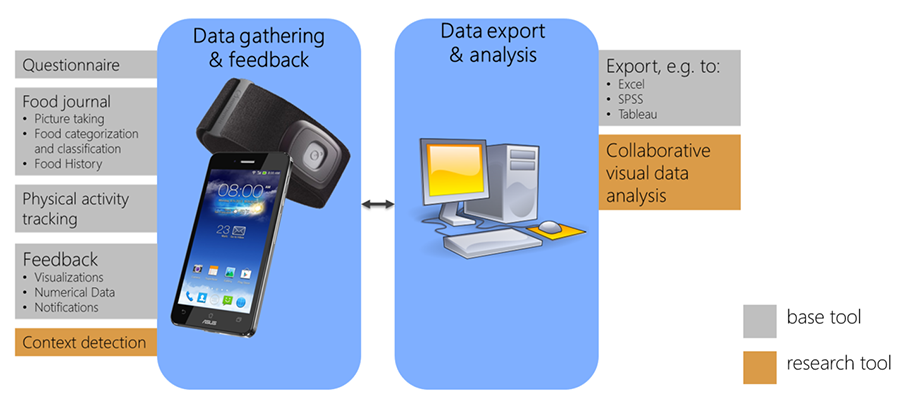SMARTACT: SMARTMOBILITY

Duration
01.02.2015 - 30.06.2023
Members
Prof. Dr. Harald Reiterer, Sebastian Hubenschmid, Jonathan Wieland
Description
SMARTMOBILITY is part of the interdisciplinary project SMARTACT. The main aim of SMARTACT is to develop and empirically test the efficacy of a toolbox for mobile, real-time interventions targeting normal eating and physical activity using mobile technology (smartphones, body monitoring). The SMARTACT toolbox will encompass different mobile and in-person intervention tools based on ‘what people do’ (behavioral pattern), ‘why people do what they do’ (psychosocial and contextual triggers of behavior), and ‘when people do what they do’ (timing of behavior and triggers). The toolbox concept allows extensive flexibility in terms of use and the future development of intervention tools that work with free-living humans since it is diverse enough to be adapted to different groups and is therefore more likely to lead to more successful and further reaching primary intervention. The purpose of having a SMARTACT toolbox is to improve health behavior change by increasing motivation, increasing self-awareness, decreasing implementation barriers, and tracking progress based on individual and normative behavioral profiles (eating, physical activity), individual (e.g., motives, emotions, stress) and social context triggers (health climate), goal setting, and individual planning (individual and social norm-based). Intervention efficacy will be also evaluated from a health economics perspective.
The goal of SMARTMOBILITY is the development of a toolbox for behavior change, defined as in the following system concept statement: The SMARTMOBILITY toolbox for behavior change (figure 1) is a set of tools which can be combined and adapted to particular research needs in the field of mobile wellness. A mobile app – the wellness diary – combines several tools to promote physical activity and normal eating: The physical activity tracking tool keeps track of users’ physical activities (e.g. step count), the food journal lets users document their food intake, the questionnaire tool gathers eating motives, and the feedback tool provides the user interactive multidimensional visualization of gathered data. The toolbox provides a high quality and depth of collected data. A user centered design approach minimizes the burden of manual data entry and maximizes ease of use. In addition, the app detects daily routines to better avoid notifying users in inappropriate situations (context detection tool, research). For the researcher, an export tool provides export options of data stored on the server. This data can then be used for collaborative visual data analysis (collaborative visual data analysis tool, research relevant).
More information on SMARTACT: Federal Ministry of Education and Research

Cooperation Partners
Publication list
